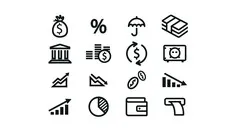
Country Level Economics: Macroeconomic Variables and Markets 
This course provides an overview of macroeconomic variables and markets, exploring how they influence individuals, businesses, and public activities. It serves as a foundation for understanding the mechanisms that shape macroeconomic variables. ▼
ADVERTISEMENT
Course Feature
![]() Cost:
Cost:
Free
![]() Provider:
Provider:
Coursera
![]() Certificate:
Certificate:
No Information
![]() Language:
Language:
English
![]() Start Date:
Start Date:
Self Paced
Course Overview
❗The content presented here is sourced directly from Coursera platform. For comprehensive course details, including enrollment information, simply click on the 'Go to class' link on our website.
Updated in [March 06th, 2023]
Country Level Economics: Macroeconomic Variables and Markets is a course designed to help learners understand the macroeconomic variables and markets that affect countries. Learners will gain an understanding of the economic principles that govern the behavior of countries, and how these principles can be used to analyze and predict economic outcomes. The course will cover topics such as economic growth, inflation, unemployment, and the balance of payments. Learners will also learn about the different types of economic markets, such as the stock market, the bond market, and the foreign exchange market. Additionally, learners will gain an understanding of the supply chain and how it affects the economy. Finally, learners will gain an understanding of the role of interest rates in the economy and how they can be used to influence economic outcomes. By the end of the course, learners will have a comprehensive understanding of the macroeconomic variables and markets that affect countries.
[Applications]
After completing this course, students should be able to apply their knowledge of macroeconomic variables and markets to analyze the economic performance of countries. They should be able to identify and explain the factors that influence economic growth, inflation, and exchange rates. Additionally, they should be able to analyze the impact of government policies on the economy and the effects of supply chain disruptions on markets. Finally, they should be able to use economic data to make informed decisions about investments and other economic activities.
[Career Paths]
1. Economic Analyst: Economic analysts are responsible for researching and analyzing economic data to inform decision-making. They use a variety of tools, such as economic models, to assess the impact of economic policies and trends on businesses and governments. Economic analysts are in high demand as the global economy continues to evolve and become more complex.
2. Supply Chain Manager: Supply chain managers are responsible for overseeing the entire supply chain process, from procurement to delivery. They must be able to identify and manage risks, optimize costs, and ensure that the supply chain is running smoothly. With the increasing complexity of global supply chains, the demand for supply chain managers is expected to grow.
3. Market Analyst: Market analysts are responsible for researching and analyzing market trends and data to inform decision-making. They use a variety of tools, such as economic models, to assess the impact of economic policies and trends on businesses and markets. Market analysts are in high demand as the global economy continues to evolve and become more complex.
4. Interest Rate Analyst: Interest rate analysts are responsible for researching and analyzing interest rate trends and data to inform decision-making. They use a variety of tools, such as economic models, to assess the impact of economic policies and trends on businesses and markets. Interest rate analysts are in high demand as the global economy continues to evolve and become more complex.
[Education Paths]
1. Bachelor of Science in Economics: This degree program provides students with a comprehensive understanding of economic theory and its application to the real world. Students learn about macroeconomic variables such as interest rates, supply and demand, and market forces. They also gain an understanding of the global economy and the impact of economic policies on different countries. This degree is ideal for those interested in pursuing a career in economics, finance, or business.
2. Master of Science in Economics: This degree program provides students with a more in-depth understanding of economic theory and its application to the real world. Students learn about macroeconomic variables such as interest rates, supply and demand, and market forces. They also gain an understanding of the global economy and the impact of economic policies on different countries. This degree is ideal for those interested in pursuing a career in economics, finance, or business.
3. Doctor of Philosophy in Economics: This degree program provides students with an advanced understanding of economic theory and its application to the real world. Students learn about macroeconomic variables such as interest rates, supply and demand, and market forces. They also gain an understanding of the global economy and the impact of economic policies on different countries. This degree is ideal for those interested in pursuing a career in economics, finance, or business.
4. Master of Business Administration in Economics: This degree program provides students with a comprehensive understanding of economic theory and its application to the business world. Students learn about macroeconomic variables such as interest rates, supply and demand, and market forces. They also gain an understanding of the global economy and the impact of economic policies on different countries. This degree is ideal for those interested in pursuing a career in economics, finance, or business.
Pros & Cons

Engaging quizes

Simple assignments

Links concepts of monetary, FX, GDP and interest rate

Explains fundamentals in an easy and detailed manner

Monotone presentation

Unstructured material

Narrow minded look

Too many peer evaluations

Too many equations

Dry and unclear instructor
Course Provider

Provider Coursera's Stats at AZClass
Discussion and Reviews
0.0 (Based on 0 reviews)
Explore Similar Online Courses

Spanish tutorials & lessons for beginners

Secure System Analysis and Design

Python for Informatics: Exploring Information

Social Network Analysis

Introduction to Systematic Review and Meta-Analysis

The Analytics Edge

DCO042 - Python For Informatics

Causal Diagrams: Draw Your Assumptions Before Your Conclusions

Whole genome sequencing of bacterial genomes - tools and applications

Econ 101: The Complete Intro to Economics For Beginners

Economics: Elasticity and its Business Aspect on Pricing


Start your review of Country Level Economics: Macroeconomic Variables and Markets